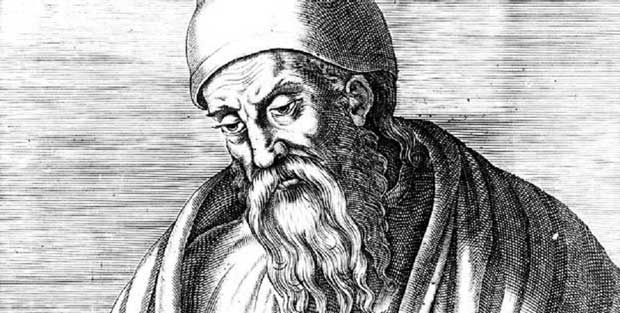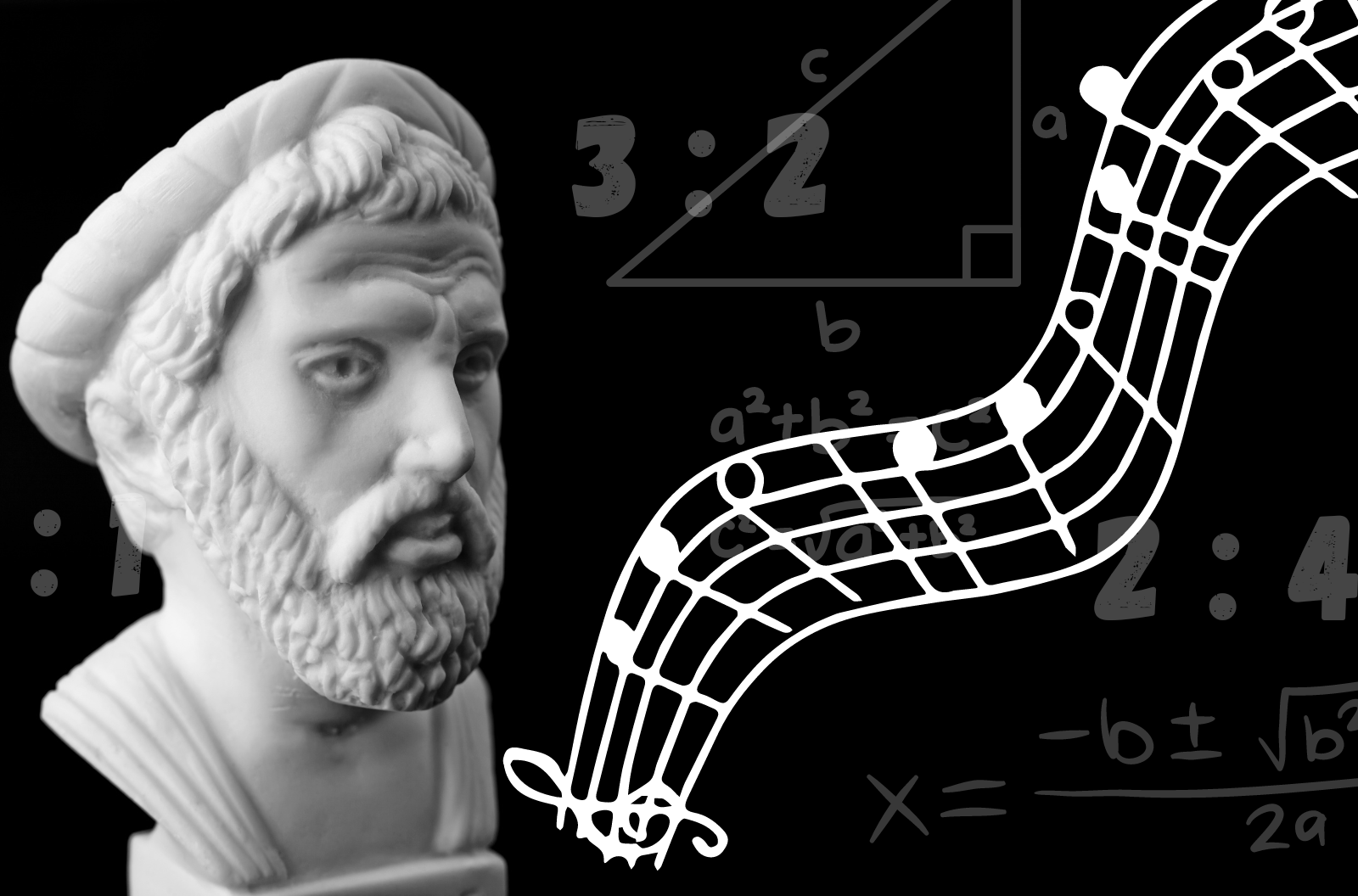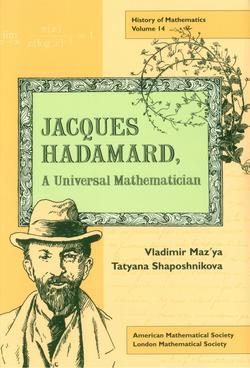Émile Borel: A Pioneering Mathematician and Physicist
The Early Life and Education of Émile Borel
Émile Borel, born on January 7, 1871, in Saint-Affrique, France, was not only a mathematician and physicist but also a military officer during World War I. His academic journey began early, as he displayed a keen interest in mathematics from a young age. Growing up in rural France, Borel's environment played a significant role in shaping his intellectual pursuits.
Borel’s formal education took place at the prestigious École normale supérieure in Paris. He enrolled there in 1892 with a clear ambition to excel in mathematics. During his time at the École, Borel demonstrated exceptional talent, which led to his appointment as a lecturer at the Sorbonne in 1900, a position he would hold until 1940. It was here that Borel began to make significant contributions to various fields of mathematics and physics.
Borel's Contributions to Probability and Theory of Functions
Borel's work in probability theory is among his most celebrated achievements. One of his earliest contributions was the development of the concept of measure theory, which laid the groundwork for modern probability. His work on measure theory helped establish a rigorous framework for dealing with complex probabilities, leading to the formulation of what is now known as "Borel sets." These sets are fundamental in understanding the behavior of random variables and processes, making them indispensable in fields such as statistics and stochastic calculus.
In 1909, Borel introduced what came to be known as the "normal number." A normal number is a real number whose digits in a given base (such as 10) are distributed uniformly. This definition provided a new perspective on the distribution of digits within numbers and has profound implications for the theory of numbers and cryptography.
Another area where Borel made significant contributions was in the theory of functions. He explored the convergence properties of series and sequences of functions, providing a systematic approach to the study of analytic continuation. This was crucial for understanding the behavior of functions near singular points, a topic of great importance in complex analysis.
Borel's Work in Set Theory and the Infinite
Set theory, a field that would later become central to mathematical logic, also saw significant advancements through Borel's work. He introduced the concept of a "Borel hierarchy," which classifies subsets of the real numbers based on their complexity. This classification system allows for a detailed categorization of sets, distinguishing between simple sets, open sets, and more complex closed sets. The Borel hierarchy has become a standard tool in descriptive set theory and measure theory.
Borel's insights into the infinite were also groundbreaking. His work on transfinite induction and ordinal numbers played a crucial role in extending the realm of mathematical discourse beyond the finite. These contributions pushed the boundaries of mathematical thought, influencing later developments in set theory and providing a solid foundation for understanding infinity in mathematics.
Borel’s Impact on Mathematics and Beyond
The influence of Émile Borel extended far beyond pure mathematics. His work had direct applications in probability and mathematical physics. In the realm of probability, Borel's concepts were instrumental in developing statistical methods, particularly in the context of insurance and risk assessment. His ideas on measure theory and probability laid the groundwork for the development of modern statistical mechanics and quantum theory.
Borel's contributions to mathematical physics have been equally impactful. His work on the theory of functions influenced early developments in quantum mechanics, particularly in the study of eigenvalues and eigenfunctions. The Borel summation technique, a method for assigning values to divergent series, became essential in the analysis of scattering events and quantum field theory.
Borel's Legacy and Influence
Borel's legacy continues to be felt in the scientific community today. His foundational work in measure theory, set theory, and probability theory has made him one of the most influential mathematicians of the early 20th century. His contributions to both pure and applied mathematics paved the way for significant advancements in subsequent generations.
Borel’s dedication to the rigor and precision of mathematical proof set a benchmark for future researchers. His pioneering work in probability theory, particularly the concept of Borel sets, remains central to modern probability and statistics. The Borel summation technique, developed further by others, is still used extensively in areas such as quantum field theory and signal processing.
Beyond science, Borel's philosophical musings on infinitesimal probabilities and the concept of normal numbers contributed to the broader discussion on the nature of randomness and the predictability of uncertain phenomena. His work continues to inspire discussions and research in fields ranging from computer science to economics.
In conclusion, Émile Borel's multifaceted contributions to mathematics and physics, along with his enduring impact on the broader scientific community, have cemented his place in history as a visionary thinker and a true pioneer in his field.
The Military Career of Émile Borel
During World War I, Émile Borel's mathematical skills were put to a different kind of test—a test of strategy, planning, and decision-making. His military career, albeit brief, was a remarkable chapter in his life. After serving as a professor at the École normale supérieure, Borel joined the French Army in 1914, initially rising through the ranks as a captain. However, it was his unique perspective and problem-solving abilities that garnered him attention and a significant role in the war effort.
Borel's involvement in the military was marked by several key episodes that showcased his strategic thinking and application of mathematical principles. He was assigned to the staff of General Ferdinand Foch, who later became the supreme commander of the Allied Forces in Europe. This collaboration led to Borel being responsible for the division of resources and logistics in strategic operations.
One of the most notable instances of Borel's military application of mathematics involved the planning of artillery fire. He utilized probability and statistical techniques to optimize the targeting and positioning of artillery units. This not only improved the effectiveness of their bombardments but also minimized civilian casualties and collateral damage, demonstrating the practical application of his probabilistic theories in real-world scenarios.
Borel's mathematical insights also played a significant role in the development of tactics to counter the German trench warfare strategy. He proposed a series of psychological warfare techniques based on statistical models of enemy behavior, which effectively disrupted German supply lines and communication networks. These initiatives exemplified his belief that advanced mathematical thinking could revolutionize military strategies.
Post-War, Borel returned to academia and continued his research, but the experiences of World War I left a lasting imprint on his work and philosophy. He wrote extensively on moral philosophy and ethical considerations in warfare, reflecting on how mathematical principles should inform ethical judgments and decision-making processes. His views on the moral responsibilities of scientists and mathematicians in conflict situations were particularly influential, shaping debates in the scientific community on the ethical implications of applied mathematics.
Borel's Advocacy for Rational Thinking and Ethics
Beyond his scientific contributions, Émile Borel was a prolific writer and advocate for rational thinking and ethical conduct. He authored several popular books and articles aimed at the general public, promoting the importance of logical reasoning in everyday life and societal issues. His book "Les Paradoxes de l'infini" (1927), translated into English as "The Ladies' Parlor," explored the philosophical implications of infinite and irrational numbers, challenging readers to consider the paradoxes inherent in mathematical concepts.
Borel argued that the ability to think critically and logically was essential for societal progress and individual enlightenment. He believed that mathematics, as a discipline rooted in rigorous logic and proof, could serve as a model for ethical decision-making in all aspects of life. His advocacy was not limited to abstract mathematical problems; he emphasized the need for ethical standards in scientific research and technological advancements.
In addition to his books, Borel delivered numerous public lectures and speeches, engaging audiences from diverse backgrounds. His efforts to make complex mathematical ideas accessible to a wide audience exemplified his commitment to education and public service. He believed that by popularizing mathematical knowledge, society as a whole could benefit from the analytical and critical thinking skills fostered through mathematical training.
Borel’s Political Work and Social Activism
Throughout his life, Émile Borel remained actively involved in political and social causes. His political journey began in the 1920s when he became a member of the Radical-Socialist Party. He served as a deputy in the National Assembly from 1936 to 1940, advocating for progressive policies that focused on education, healthcare, and social welfare. Borel’s political activities underscored his belief in the transformative power of knowledge and rationality.
One of Borel’s most significant contributions to political and social discourse was his support for pacifism and international cooperation. During the interwar period, he participated in peace rallies and conferences, promoting disarmament and the establishment of international institutions to resolve conflicts peacefully. His involvement in these movements reflects his belief that rationality and logic could help prevent wars and promote global harmony.
Borel’s political activism also included his efforts to reform the French education system. He advocated for increased funding for schools and universities, arguing that a well-educated population was essential for a democratic society. His support for educational reforms and his role in implementing them ensured that a generation of students was better equipped to engage critically with the world around them.
Borel’s Personal Life and Legacy
Émile Borel's personal life was marked by both challenges and accomplishments. Despite his contributions to mathematics and science, he faced personal tragedies, including the loss of his mother in 1925 and the death of his wife in 1952. These losses undoubtedly shaped his worldview and reinforced his commitment to his cause.
Borel was known for his charm and wit, often using humor to lighten difficult situations. Many remember him not only for his scientific mind but also for his warmth and accessibility. His ability to connect with people across different social and academic strata made him a respected and beloved figure in French intellectual circles.
Borel continued his active life well into his later years, maintaining a robust schedule of lectures, writing, and activism. His final years were spent working on his memoirs and continuing to champion the values of rational thinking and ethical conduct. On December 3, 1956, he passed away in Paris, leaving behind a legacy that extends far beyond his mathematical theorems and equations.
Émile Borel’s life and work exemplify the intertwining of intellectual endeavor and ethical responsibility. From his groundbreaking contributions to mathematics to his advocacy for rational thinking and social justice, Borel’s life story is one of constant pursuit of truth and the application of rigorous logic to better understand and improve the human condition.
Borel’s Posthumous Recognition and Modern Impact
Émile Borel's legacy has endured well beyond his lifetime, continuing to inspire mathematicians, scientists, and thinkers around the world. His work remains relevant in contemporary mathematical and scientific communities, providing a foundation for cutting-edge research in probability, set theory, and theoretical physics.
In the realm of probability theory, Borel's concepts continue to influence developments in stochastic processes and risk analysis. His pioneering work on Borel sets remains a cornerstone of measure theory and is fundamental in advanced courses on probability and statistics. Researchers and practitioners in fields such as finance, engineering, and data science frequently draw upon Borel's contributions to model and analyze complex systems.
Borel’s ideas on the infinitude and randomness found in natural phenomena continue to resonate with scholars in various disciplines. His exploration of normal numbers and the concept of randomness have implications not only for mathematics but also for philosophy and cognitive science. The study of how randomly distributed features manifest in the physical world has sparked ongoing interest and research, particularly in the context of artificial intelligence, where understanding randomness is crucial for developing robust algorithms.
Émile Borel's advocacy for ethical thinking and rational decision-making in mathematics and science has left a lasting legacy. His writings on ethics and the moral responsibilities of scientists continue to be cited and debated. His views on the importance of logical reasoning in resolving ethical dilemmas are particularly pertinent in the era of rapid technological advancement, where ethical considerations in data science, AI, and biotechnology are increasingly important.
Borel’s Influence on Subsequent Generations
Borel's influence on subsequent generations is profound and multifaceted. His students, colleagues, and fellow mathematicians have carried forward his ideas, building upon his foundational work to explore new frontiers in mathematics. Renowned mathematicians such as András Kündi, who studied under Borel, have perpetuated his legacy by advancing the fields of measure theory and stochastic processes.
Moreover, Borel's emphasis on the practical applications of mathematics has inspired countless students to pursue careers in both academia and industry. His belief in the power of rigorous mathematical reasoning to address real-world problems continues to motivate young mathematicians and scientists. The legacy of Émile Borel can be seen in the numerous mathematical journals, conferences, and textbooks dedicated to honoring his contributions.
The Borel Library and Archives
To preserve the memory of Émile Borel and his work, the Émil Borel Institute, located in Paris, houses a comprehensive collection of his writings, manuscripts, and correspondence. The institute also conducts research and educational programs that highlight Borel's achievements and promote ongoing studies in areas such as probability and mathematical logic. The Borel Library serves as a repository for scholars and enthusiasts alike, ensuring that Borel's legacy continues to inspire new generations of mathematicians and philosophers.
Conclusion: The Enduring Legacy of Émile Borel
In summary, Émile Borel was a multifaceted individual who left an indelible mark on the scientific and intellectual landscape of the 20th century. His contributions to mathematics, probability, and ethical thinking continue to shape contemporary discourse in various scientific and philosophical domains. Through his rigorous application of logical reasoning and ethical reflection, Borel demonstrated the power of mathematics to not only solve complex problems but also contribute to the betterment of society.
Émile Borel's legacy stands as a testament to the potential of interdisciplinary inquiry and the importance of applying mathematical principles to real-world challenges. As we celebrate his achievements, we also recognize the continuing relevance of his ideas in our rapidly evolving world. Borel's enduring impact serves as a reminder that the pursuit of truth and the application of rationality remain vital in addressing the complexities and uncertainties of the modern era.



















Comments